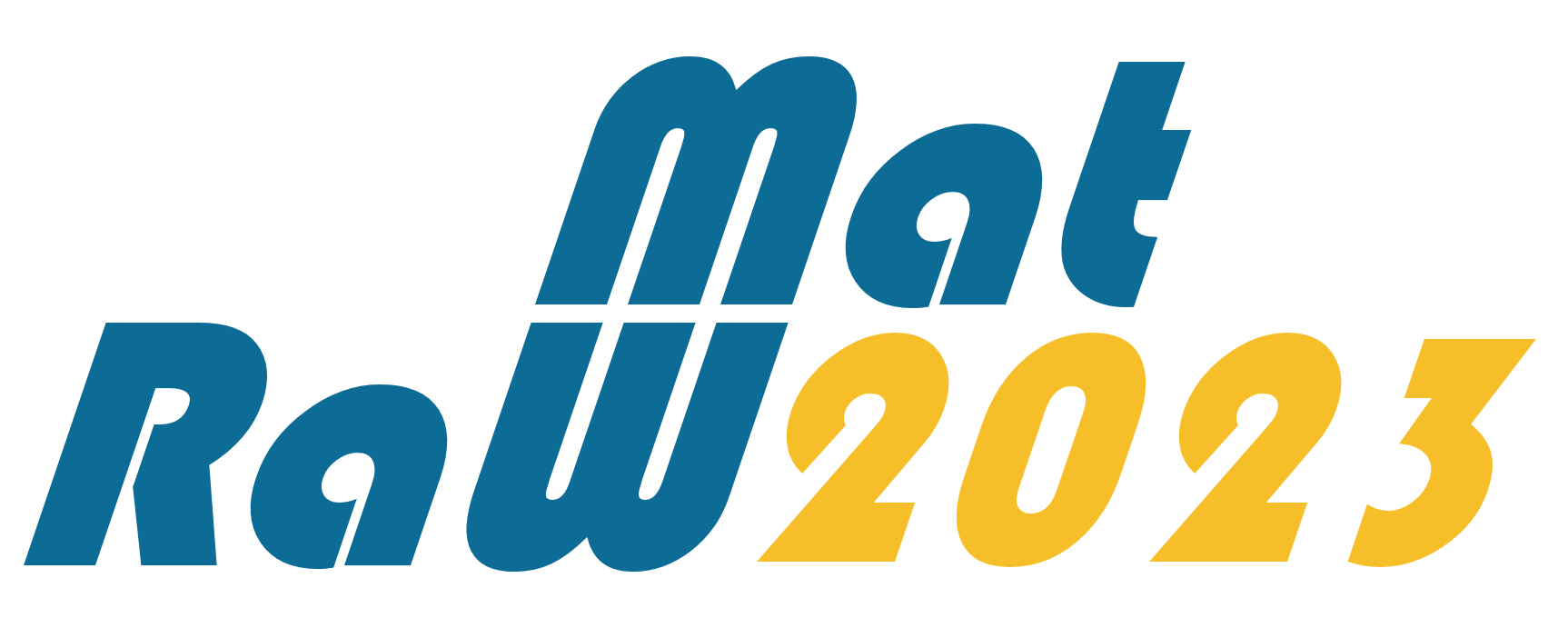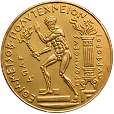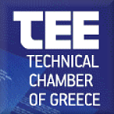Main Conference Topics
Following the demands and trends of modern society, RawMat2023 shall address a wide range of technological developments and future challenges regarding Raw Materials with an emphasis on Circular Economy aspects. RawMat2023 covers a broad list of topics as follows:
(Organization: N. Arvanitidis, Κ. Adam, P. Tzeferis, P. Koutsovitis, I. Paspaliaris)
The challenge for the mineral industry is to develop and scale up such promising technologies to demonstrate that raw materials, especially Critical Raw Materials, can be produced sustainably, maximizing and highlighting at the same time the potential for a more circular usage of critical minerals and metals in our economy. This way increases the EU’s supply security and enables the implementation of resource efficient value chains. Under this topic, we expect papers dealing with:
- Critical and strategic mineral raw materials: Current state and future challenges.
- Opportunities for sustainable growth in comprehensive mineral value chains (by driving innovation).
- Roadmap for the transition to a circular and resource efficient economy.
- Product design in the circular economy: substitution of critical and strategic mineral raw materials.
- Role of mineral raw materials in the EU Green Deal.
- Decarbonisation and resource efficiency in mineral and metallurgical processes.
- Mining wastes as a potential secondary resource to meeting critical and strategic minerals demand.
- New regulatory framework for implementation of Strategic Environmental Assessment.
(Organization: S. Kilias, S. Kalaitzidis, V. Melfos, K. Laskaridis, I. Kapageridis)
The fast-increasing global populations and socio-economic development have resulted in mounting demand for natural resources and raw materials. The extractive industry is rapidly changing to adapt to a more sustainable and environmentally neutral operational concept and contribute to green and digital transitions. The urgent need to increase and diversify the critical raw materials supply and strengthen circularity has added extra pressure on the extractive industry to deliver the necessary raw materials. As a result, exploration for new raw material deposits intensifies constantly. This session welcomes contributions regarding the whole spectrum of exploration, extraction, processing and recycling of raw materials, including critical and strategic minerals, energy raw materials, and secondary raw materials.
- Innovative solutions for the exploration and assessment of critical and strategic raw material resources
- Deep Mineral Exploration: Novel ways to search for buried ore deposits, including deep-sea subseafloor environments
- Coal & Hydrocarbons exploration in the Energy Transition Era
- Raw materials resource assessment
- Advances in geostatistics, remote sensing and GIS applications in minerals exploration and resource characterization
- Minerals and Metals Characterisation: development of an analytical capability to the nanoscale
(Organization: M. Menegaki, I. Kapageridis, M. Galetakis, Z. Agioutantis, C. Saroglou, C. Roumpos)
The global mining industry is facing complex challenges. Growing social and environmental concerns, climate change pressures, changing and uncertain demand for mineral products and management of the massive amounts of data produced across the value chain are few of them. Addressing these challenges is a priority for the long-term sustainability of mining. This target requires the transformation of the mining industry with the adoption of new processes and technologies. Under this topic we expect papers dealing with:
- Advances in Mine Planning and Mine Investment Analysis
- Mining Technology for Sustainable Development
- Digitalization, Automation, and Intelligent Systems in Mining
- Electrification in Mining
- Emerging Methods of Mining
- Critical Minerals Development
- Natural Stones and Aggregates Quarrying
- Mining Geotechnics
- Mine Water Control
- Mine Waste Management
- Environmental, Social, and Governance in Mining
- Health, Safety and Environment
- Mine Closure and Land Reclamation
(Organization: K. Komnitsas, K. Tsakalakis, G. Anastasakis, Ε. Petrakis)
This topic focuses on the development and use of innovative mineral processing technologies for the liberation, separation and recovery of critical elements from complex and refractory ores as well as from mining and processing wastes. Such technologies will contribute to meeting the demand for critical elements that is essential for the development of sustainable and circular near-zero waste beneficiation approaches. Papers are expected in the following subtopics
- Advances – New equipment in ore beneficiation
- Beneficiation of rare earth element bearing minerals
- Processing of mining / metallurgical waste and end-of-life products for metals recovery
- Water management
(Organization: E. Balomenos, D. Panias, K. Komnitsas, A. Peppas)
Sustainable Metallurgy focuses on developing new or modifying existing extractive metallurgical processes in order to achieve reduction/elimination of CO2 emissions and other waste streams as well as to reduce energy consumption. The use of novel digital tools to control and drive metallurgical processing is also expected to contribute to sustainability (twin transition: Green and Digital). Finally, Sustainable Metallurgy is crucial in providing the elements needed for current and future renewable energy production and storage in a sustainable manner. Under this topic, we expect papers dealing with:
- Advances towards the twin transition in pyro-, hydro-, bio- , electro- and solvo-metallurgy
- Use of mining/metallurgical wastes and low-grade ores as new sources for metal extraction
- Advances in critical and noble elements recovery from mining, metallurgical and urban waste
- Computational thermodynamics and kinetic modelling in applied systems
- Industry 4.0 and digital twins
- Decarbonization / electrification of metallurgical processes
- Use of Hydrogen in extractive metallurgy
(Organization: M. Taxiarchou, Y. Pontikes, A. Argyraki, A, Godelitsas, K. Laskaridis, N. Kantiranis)
Industrial minerals are at the forefront of innovation and play an essential role in many innovative applications. Their functionalities and properties make them very versatile value-added products, which are essential to many sectors. The topic will address the challenges and opportunities for the industrial minerals sector, focused on:
- New processing technologies
- Advanced exploration techniques
- Recycling and reuse of industrial minerals: the circular economy paradigm
- Industrial clays and their applications
- Environmental applications, products, and technologies
- Construction industry applications
- Industrial minerals in the chemical industry, pharmaceuticals, and cosmetics
- Industrial minerals for the extraction of Critical and Strategic metals
- Industrial mineral science (clays, zeolites, phosphorites, sands, Li- and B-sources, bauxites & laterites)
(Organization: K. Komnitsas, A. Peppas, K. Adam, C. Vasilatos, G.-A. Sakelaris, C. Roumpos)
This broad topic aims to cover the scientific inter-related areas of environment and energy so that the mining and metallurgical industry develop optimum solutions to meet societal expectations pertinent to sustainable development. Papers are expected on the following subtopics:
- Mining sites: environmental monitoring, assessment and management
- Mine closure and land reclamation – Historical mine sites rehabilitation
- Mining in protected areas: ecosystems assessment, restoration, and management
- Social licensing for mining projects
- Risk analysis and Life Cycle Assessment (LCA)
- Carbon footprint of the raw materials value chain
- Sustainability in the mining/metallurgical industry
- Advances in Mining/metallurgical waste management and valorisation
- Waste characterisation and treatment of waste, effluents, soil and groundwater polluted by mining activities
- Nano-materials: technologies for environmental applications
- Energy savings in the mining and metallurgy sector
- Use of alternative fuels (renewables, hydrogen, etc.) in metallurgical plants
- Green minerals / wastes for energy storage
(Organization: E. Balomenos, D. Panias, K. Komnitsas, Y. Pontikes, A. Godelitsas)
Under the Green transition, mining and metallurgical by-products and waste streams can no longer be landfilled. Reuse of such streams must take place in order to safeguard the environment, minimize industrial land usage and reduce virgin ore consumption and processing in other industrial sectors. Under this topic, we expect papers dealing with:
- New and innovative uses for by-products and waste of the mining/metallurgical Industry
- Novel pathways to Industrial symbiosis between different raw material sectors
- Construction waste management and reuse
- End-of-life products collection, sorting and recycling
(Organization: K. Adam, M. Galetakis, M. Menegaki)
The role of Education in the sustainable development of the whole value chain of Raw Materials is covered in this topic. Within this framework, new pedagogical methodologies and tools, and the importance of diversity and inclusion to increase the capacity of Raw Material graduates and Life long Learners will be examined
- Challenge-based education
- Artificial intelligence in education, ICT-based education.
- Lifelong learning and mentoring.
- Women in Raw Materials Education and Research
- The role of European Universities in the education of Raw Materials engineers and geoscientists.
(Organization: M. Galetakis, I. Kontos, K. Adam)
The twin transformation of the raw materials industry into green and digital creates new challenges in the working environment. New ‘green jobs’ are created, and novel technologies for the effective management of occupational risk are available, while at the same time, new emerging risks appear. This topic focuses on the current state and progress in OHS, industrial implementations, future trends and potential applications to OHS emerging problems. Under this topic, we expect papers dealing with:
- OHS hazards, identification, evaluation and control – emerging hazards
- OHS management systems, indicators and measurement techniques
- OHS culture building (leadership, motivation, education, training, inspection, auditing)
- Regulations of mine safety and health, safety compliance enhancement and productivity improvement
- Mine safety and health innovative technologies (e.g. robots and automation, proximity detection systems, wearable devices, RFID, drones, worksite simulators)
- Occupational health and safety in ‘green jobs’ related to re-use, recycle and valorisation of metallurgical and mining by-products and wastes.
(Organization: P. Tzeferis, C. Kavalopoulos, C. Roumpos, V. Melfos)
Greece is an EU country with significant mineral resources in terms of quality, quantity and variety of metallic minerals, industrial minerals, marbles and aggregates. These include resources of Critical Raw Materials and other strategic metals necessary for the energy transition technologies. The Greek Mining/Metallurgical Industry (GMMI) plays a vital role in the economy of the country. However, the sector’s prosperity has been hindered by several shortcomings and bottlenecks that make mining in Greece difficult or in some cases not possible. Under this topic, we expect papers dealing with:
- Exploration of critical and technologically important mineral raw materials (MRM) in Greece
- Greek Mining – Metallurgical sector and circular economy
- Decarbonization of the energy sector in Greece
- Geothermal Energy in Greece
- Greek Mining – Metallurgical sector towards green digital transition: technological, structural, legislation and societal issues
- Other important Greek specific issues in the quarry, mining-metallurgical and waste management sector.
Address
Prof. Anthimos Xenidis,
School of Mining & Metallurgical Engineering, Zografou Campus, 9, Iroon Polytechniou str,
15780, Athens, Greece
Phone
+30 697 8800991


